Blockchain
Blockchain Technology in Financial Institutions and Banking
Published
4 years agoon

The financial system has evolved from analyzing traditional ledgers to providing digital solutions such as online banking and mobile applications. It is not surprising that commercial banks around the world are entering the race for the latest technology in vogue: Blockchain. Financial institutions are increasingly betting on this technology to revolutionize the financial system once again.
Banks and financial institutions are so interested in blockchain the lies of the banking system’s competitive nature and the growing demand for faster and more efficient service. To keep pace with society, which increasingly seeks to see its needs met instantly, financial institutions seek to adapt to the demand for greater agility, new products, and services. However, the sector’s own needs, such as security, continue to be a priority and a challenge in the face of the threat of cybersecurity and hacking.
What is blockchain?
The blockchain is often described as a decentralized ledger or a replicated database on a peer-to-peer network. In other words, this technology is essentially a new type of storage that allows all of its users to share a database and make modifications safely.
Unlike other more traditional options, the data has been duplicated thousands of times through a decentralized computer network (the peer-to-peer network ) independently in this storage system.
With this public and decentralized network, transactions are protected and carried out under a total privacy blanket. Data protection is achieved through the encryption of information in the transaction link. These transactions are based on digital accounts or wallets that grant participants anonymity through their digital identity.
The system works under the participants’ consensus, conditional on each version of the data corresponding in its entirety with the information shared in the database. This eliminates the need for a central authority and puts the control in the participants’ hands, which means that any inappropriate modifications to the database will be immediately detected by all participants, turning this process into an immutable auditing mechanism.
Blockchain technology, also known as the blockchain, was developed as an underlying technology of bitcoin that aimed to record and verify the cryptocurrency transactions. The blockchain has achieved its own place thanks to its potential as a disruptor of the centralized system and streamlined more complex processes. Although bitcoin’s evolution has been erratic, other cryptocurrencies are also gaining attention thanks to this technology and the advantages it offers. To stay updated with blockchain and cryptocurrency news you can find relevant content here.
Blockchain can achieve this thanks to the nature of its design: a collection of distributed, shared, secure and immutable blocks. Each block of information is distributed to all the participants (nodes) in the network, which guarantees a replica to prevent data’s undue alteration. For a transaction to occur, its validity will have to be verified by each of the network nodes, and the information will be registered and shared transparently within the chain.
This is what makes blockchain attractive to financial institutions. To understand how blockchain will fit the modern world’s needs, it is worth taking a step back and analyzing the relevance of this technology in various sectors of the economy.
Who is using blockchain?
The World Economic Forum estimates that the blockchain stores only about 0.025% of the world’s GDP. However, the expectation is that this figure will increase, with banks, insurance companies, and companies in the technology sector leading the trend.
According to research in PwC’s 2018 Global Blockchain Survey, approximately 84% of the executives surveyed are looking to calculate the impact this technology could have on their businesses. At the same time, global companies such as Amazon, Microsoft, IBM, and Facebook are evaluating possible applications for the blockchain, as well as other financial institutions, such as JP Morgan and HSBC, and other leading multinational companies in consulting and audits, such as Accenture and Deloitte (respectively).
The interest that blockchain technology has generated can be observed in the economy’s various sectors, from finance to health and pharmaceuticals. However, banks are leading the advances in the development and implementation of this technology.
Another example is emerging economies seeking the benefits that blockchain technology offers. Kenya has explored the possibility of providing election results in real-time to build confidence in its electoral process. Meanwhile, Nigeria has adopted Oracle Blockchain Cloud Service in its customs services to support merchandise tracking, automate processes, and increase levels of transparency and trust in the business sector.
Among the advanced economies, Spain seeks to apply the blockchain in the forestry sector for time certification and improve the management of logistics companies’ supply chains. Also, in our country, Valenciaport seeks the application of blockchain technology to get closer to the concept of the smart port.
The use of blockchain in banking
For banking, the blockchain’s use offers potential benefits for the prevention of fraud and even for the elimination of some errors typical of humans. On the technical side, the validation, protection, coding, distribution, and tracking of data and transactions are the main attractions of this technology. The blockchain is already considered a transformative agent for settlement and clearing, international transactions, trade finance, identity verification, and loan management.
Since international regulations do not restrict blockchain technology, its implementation has the potential to transform the banking sector and turn it into a cooperative industry between financial services institutions and Fintech companies and boost digital cooperation and innovation. , the evolution of new business models, and more competitive banking.
Spanish banks and the blockchain
Spain quickly recognized the potential of blockchain, and banks are showing a growing interest in this technology. Below, we present some examples of the advances of Spanish banking based on the blockchain:
In April 2018, Banco Bilbao Vizcaya Argentaria issued the world’s first corporate loan with Indra. The transaction of 75 million euros was carried out with its solution based on blockchain technology. In June, BBVA and Repsol closed the first operation of a credit line for 325 million euros, again through its blockchain network. A month later, the bank issued a 100 million euro corporate bilateral loan for the ACS Group.
Banco Santander and leading company Broadridge Financial Solutions used blockchain technology in March 2018 to vote at a general shareholders meeting. Also, Santander launched via iTunes Pay FX, the world’s first application for international payments (Eurozone and USA) based on this technology. In the same year, the bank created a blockchain research team to explore its potential in securities trading, including derivatives, debt, and other products.
In that sense, according to Carlos Bernal, Indra’s director of financial services in the country, the blockchain should stop being seen as a threat, to be seen as an opportunity.
How has the financial sector changed?
It is facing a profound change in the model as a consequence of the digital transformation. Phenomena such as platformization, open banking, or the growing demand for advanced digital identity solutions mark this evolution.
However, rather than as a threat, digital transformation should be a fantastic opportunity to improve entities’ cost structure and increase their predictive capacity in terms of risk analysis.
What is the relationship that the financial sector has with technology?
This sector is in the post smartphone era, which requires the creation of a new model of digital relationship with customers and, for this, it is necessary to evolve from a branch centric concept to another customer-centric, and this is not only achieved with the closure of offices and reduction of staff.
How is security approached within the new financial environment?
The digital transaction is one of the processes that best characterizes the new model towards which the bank is heading. That is why the so-called digital identity is presented as a fundamental technology to implement new business models that take advantage of the digital field’s potential.
What is Indra’s role in this sector?
Indra is a leader in the development of technologies for the financial sector in Spain and Latin America. Currently, the top 10 Spanish entities are clients of the company, and it’s Latin American clients represent more than 40% of total banking assets in the region.
The company manages more than 2,000 projects per year for 400 banking and insurance groups in Europe, Latin America, and the Asia Pacific. And it is the leading company in means of payment in the Iberian Peninsula and one of the largest global operators in Latin America.
Additionally, it is a leading operator in digital transformation, whose differential offering aims to achieve immediate and tangible results.
They recently announced their ability to launch 100% digital banking.
We have an innovative, disruptive, and differential offer that allows creating a native digital bank from scratch in record time. In practice, our model enables the financial institution to respond quickly to the challenges posed by the new context, characterized by an unprecedented level of interaction with customers through exclusively digital channels.
What do banks gain from this?
The banks, which count on Indra as a technological partner, enjoy the highest functionality and ability to serve their customers, thus offering a differential service with high added value.
Thus, the banking customer benefits from a personalized and homogeneous user experience.
What is your perspective on the ‘blockchain’?
For us, this technology has a great capacity for transformation in complex scenarios and processes. Several actors have to trust and collaborate since it provides two essential elements for change: more trust and less friction while focusing on information privacy and performance.
How could the ‘blockchain’ boost the financial sector?
This technology can represent significant savings in terms of infrastructure and an improvement in the efficiency of the processes in the back office.
Besides, it is a facilitator for the development of new digital businesses, which lead to the implementation of new business models and the design of new products and services. The blockchain system works like a large ledger or database.
Do you already have experience in this type of technological development?
BBVA and Indra have successfully concluded the first operation that facilitates the negotiation and signing of a corporate loan using blockchain worldwide; this, in line with their close collaboration to transfer the advantages of the most advanced technology to business operations.
How does blockchain technology help in the accounting of people and companies?
One way that the blockchain can represent a step beyond accounting lies in the fact that, instead of keeping separate records based on transaction receipts, parties will be able to write their transactions directly to a common record. These entries are protected with encryption so that falsifying or deleting them is practically impossible.
Will digital accounting be more and more a trend?
Indeed, the blockchain allows us to go beyond digital accounting. Although digitized, the accounting processes always required a neutral mediator to verify the acceptance of the terms of both parties, making the operation possible.
What other uses does the ‘blockchain’ have?
Despite the advances of the blockchain, financial transactions continue to transit mainly through networks and infrastructures that were built half a century ago. The operating systems of banks were designed on network protocols that are not current.
Therefore, it is not plausible that replacing banking and interbank infrastructures from off-blockchain to on-blockchain is imminent, but it should be intensified as of 2020.
But if a bank uses blockchain, there are no risks that the copy of the database on my computer can be compromised?
Blockchains can be public or private databases. If we had a public registry like a property registry, maybe we would like to have a public blockchain. If we are a private entity, we can choose to encrypt the database, and the encryption system is protected by the collective power of the connected computers. To this day, the world does not know a safer protection system than BlockChain. In a public BlockChain, such as Bitcoin, you can see the history of the transactions, but the two parties’ entity is secret.
In addition to security, Bitcoin offers other benefits. Since each piece of information has a unique identifier, a user’s ability to “double pay” is eliminated. In other words, if I have a digital photo and I send it to my friend, in the world of Bitcoin, the photo cannot be copied, and it is transferred from me to my friend. Bitcoin also offers to speed up transactions and lower costs by eliminating the burdensome part of verifying transactions. Electronic money, financial products, even physical property, can be registered in a BlockChain, eliminating the need for many red tape and lawsuits to determine who is the “real” owner of something.
As a new technology, BlockChain is still being tested and explored to determine its best uses. As JPMorgan Chase and Goldman Sachs, along with bags as NASDAQ, banks are investigated the potential of BlockChain (a technology whose source code is free and available for anyone to download person). In short, BlockChain could represent the next wave of innovation in the financial sector. Is your bank considering how to use it? What other uses could we give to BlockChain? Leave your ideas in the comments section.
You may like
Blockchain
El Salvador Bitcoin Treasury Climbs to Over $350 Million
Published
2 days agoon
May 16, 2024By
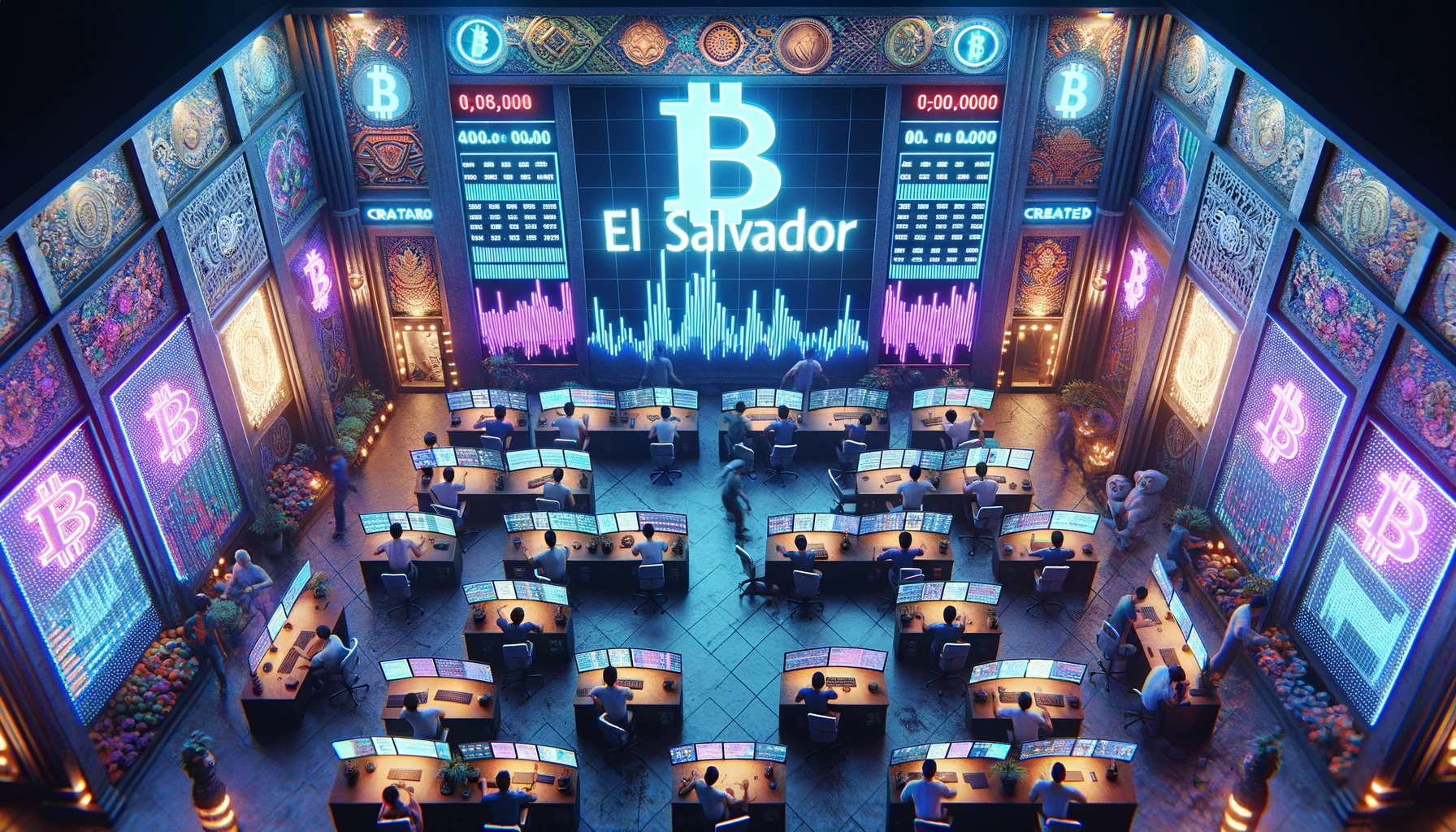
El Salvador Bitcoin Treasury climbs over 350 Million as with this bold experiment in national economics and finance, positioning the country at the forefront of cryptocurrency adoption worldwide.
As of 2024, the valuation of El Salvador’s national Bitcoin treasury has impressively surpassed $350 million, reflecting both the growth in Bitcoin’s market value and the country’s aggressive acquisition strategy.
This milestone highlights El Salvador’s commitment to integrating Bitcoin into its economic infrastructure, with significant implications for its financial system and international standing.
Overview of Historical Context and Initial Investments in El Salvador’s Bitcoin Strategy
El Salvador officially adopted Bitcoin as legal tender in September 2021, under the administration of President Nayib Bukele.
The move was groundbreaking, making El Salvador the first country to integrate cryptocurrency into its legal and financial systems. Initially, the government purchased 400 Bitcoins and has since increased its holdings to 5,748.76 BTC.
The strategy aimed to leverage Bitcoin to boost economic growth, attract foreign investment, and increase financial inclusivity among its population.
However, the decision was met with domestic and international skepticism due to concerns about volatility and regulatory challenges.
Current Holdings and Value
As reported by Binance, El Salvador now holds a significant amount of Bitcoin, valued at over $350 million.

The government has established a transparent mechanism to monitor these holdings through a newly introduced website, which provides real-time data on the quantity and value of its Bitcoin assets.
This initiative is part of a broader effort to demonstrate transparency and build trust among citizens and international observers.
El Salvador Bitcoin Treasury Impact on El Salvador’s Economy
Financial Implications
The adoption of Bitcoin has had profound financial implications for El Salvador. It can potentially reduce transaction costs, bypass banking fees, and facilitate remittances, constituting a significant portion of the country’s GDP.
However, the volatility of Bitcoin poses risks to fiscal stability, as fluctuations in its value can dramatically affect the national budget and economic planning.
This aspect of El Salvador’s Bitcoin strategy has attracted considerable attention from global financial analysts and has been the subject of extensive coverage in leading financial news outlets, including Bloomberg.
Public and International Perception
Internationally, El Salvador’s move has been viewed with curiosity and caution.
Financial institutions like the IMF have warned of potential risks associated with adopting a cryptocurrency as legal tender, citing concerns over economic stability and transparency.
Domestically, the public’s response has been mixed, with some expressing pride in their country’s innovative approach. In contrast, others are apprehensive about the potential economic repercussions and the steep learning curve of using digital currencies.
Challenges and Criticisms

Economic Volatility
The intrinsic volatility of Bitcoin is a significant concern. Its price can experience substantial swings based on market dynamics, which can immediately impact the value of El Salvador’s national treasury.
Such fluctuations pose challenges for budgeting and financial forecasting, complicating economic management at a national level.
Political and Regulatory Challenges
El Salvador’s Bitcoin policy has also faced political and regulatory challenges.
Locally, the opposition has criticized the government for lacking a comprehensive strategy to educate the public and mitigate the risks associated with cryptocurrency transactions.
Internationally, the country faces scrutiny from regulatory bodies concerned about the implications for global financial stability and compliance with international financial regulations.
Future Prospects and Government Plans of El Salvador
Government Statements and Actions
In light of these challenges, Salvadoran officials have reiterated their commitment to the Bitcoin strategy, emphasizing potential long-term benefits such as increased financial inclusivity and economic innovation.
The government has announced plans to continue bolstering the infrastructure necessary to support Bitcoin and other digital currencies, aiming to make El Salvador a hub for cryptocurrency innovation and investment.
Potential Expansion and Technological Investments
El Salvador plans to expand its technological framework to better integrate Bitcoin into its economic and financial systems.
Investments in technology that will enable more straightforward and safer transactions are part of this, as they will increase the acceptance of Bitcoin in various economic sectors.
Conclusion
El Salvador’s venture into Bitcoin as a legal tender is an ongoing and evolving experiment, drawing global attention and debate.
This bold initiative’s outcome could influence future cryptocurrency adoption policies in El Salvador and worldwide.
It represents a crucial case study in the intersection of technology, finance, and national governance.
FAQs
What is the current value of El Salvador’s Bitcoin holdings?
El Salvador’s holdings in Bitcoin are valued at over $350 million, reflecting the nation’s substantial investment in this digital asset.
How has the adoption of Bitcoin affected El Salvador’s economy?
Bitcoin adoption has offered opportunities for financial innovation but has also introduced significant volatility and economic risk.
What are the risks of El Salvador’s strategy of holding Bitcoin?
The primary risks involve economic volatility, regulatory challenges, and potential political instability due to the controversial nature of the strategy.
How does the Salvadoran government plan to manage the volatility associated with Bitcoin?
The government is enhancing regulatory frameworks and investing in technological infrastructure to stabilize and secure Bitcoin transactions.
What future plans does El Salvador have regarding its cryptocurrency strategy?
El Salvador aims to expand its technological framework, improve regulatory policies, and maintain its position as a global leader in cryptocurrency adoption.
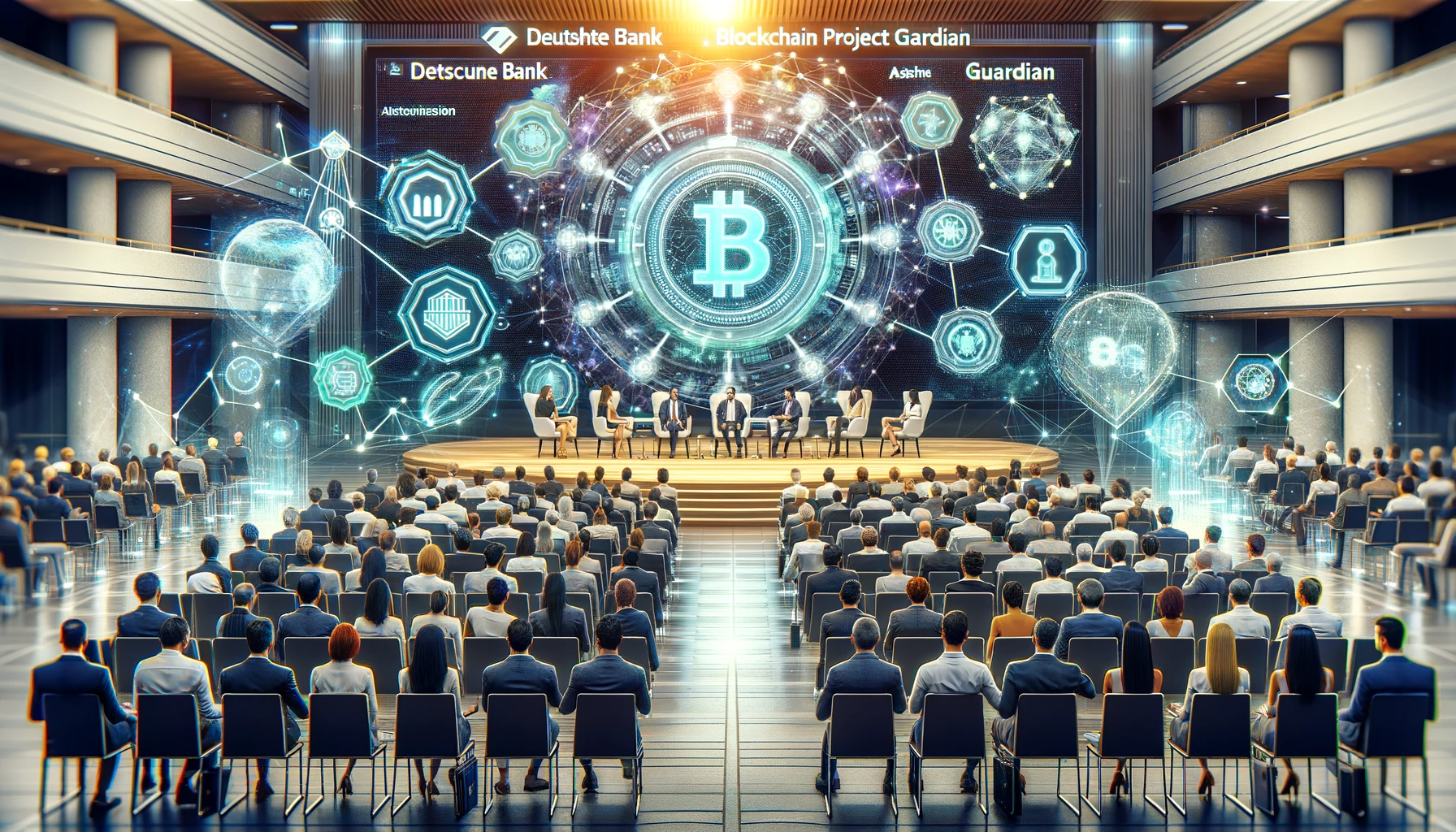
Deutsche Bank Blockchain Project Guardian is a groundbreaking initiative spearheaded by the Monetary Authority of Singapore (MAS). This project is set to explore the expansive potential of asset tokenization and decentralized finance (DeFi) within the financial sector.
This project is part of a larger effort by MAS to blend traditional financial practices with innovative blockchain technologies, aiming to enhance the efficiency, transparency, and security of financial transactions across various asset classes.
While MAS strongly discourages and seeks to restrict speculation in cryptocurrencies, we see much potential for value creation and efficiency gains in the digital asset ecosystem. This is why we are actively collaborating with the industry to foster a responsible and innovative digital asset ecosystem.
As we enter this new phase of Project Guardian, we look forward to collaborating with fellow policymakers and industry practitioners to jointly develop effective frameworks to guide the sound development of future financial networks.
Leong Sing Chiong, Deputy Managing Director (Markets and Development), MAS
Project Guardian, first introduced by MAS, serves as a collaborative platform that engages multiple top-tier global financial institutions, regulatory authorities, and technology companies.
The initiative focuses on experimenting with and understanding blockchain’s applicability in areas like asset management, fixed income, and foreign exchange.
For Deutsche Bank, this participation signifies a crucial step towards embracing digital transformation and preparing for future financial ecosystems dominated by digital assets and technologies.
Deutsche Bank’s involvement highlights its commitment to innovation and its strategic approach to leveraging new technologies to stay competitive in the rapidly evolving financial landscape.
By participating in Project Guardian, Deutsche Bank aims to explore the practical aspects of blockchain in reducing complexities in asset management, improving transaction speed, and lowering costs, which could revolutionize traditional banking operations and client services.
The bank’s collaboration in this project not only allows it to pilot cutting-edge technologies in a regulatory-compliant environment but also positions it as a forward-thinking leader eager to tap into the emerging market of tokenized assets.
The involvement is expected to yield insights into the scalability and robustness of blockchain applications in real-world financial settings, providing Deutsche Bank with a competitive edge in digital finance.
Deutsche Bank Blockchain Project Guardian Strategic Integration

Deutsche Bank is among the key financial institutions collaborating under the MAS-led Project Guardian, which aims to test the viability and impact of asset tokenization in modernizing financial practices.
This involvement is not merely participatory; Deutsche Bank is actively engaging in pilot projects that test tokenization across several financial sectors, including asset management, fixed income, and foreign exchange, which are crucial to understanding the practical applications and potential disruptions blockchain technology may bring to the financial industry.
Contributing to Project Guardian will bolster our efforts to help shape the new frontier of asset servicing, and strongly position us to contribute to industry progress, and not only anticipate our clients’ needs but exceed their expectations.
Strategic Importance for Deutsche Bank
The strategic importance of Deutsche Bank’s involvement in Project Guardian lies in its potential to redefine financial asset management and transaction processes.
By integrating blockchain technology, Deutsche Bank aims to achieve greater transaction efficiency, enhanced transparency, and improved security measures.
The project allows the bank to explore these technologies in a sandbox environment, mitigating risks while assessing the feasibility of wider implementation across its global operations.
Asset tokenization, as explored in Project Guardian, could significantly lower the barriers to entry for various investment opportunities, allowing for smaller investment denominations and broader investor participation.
The democratization of access to high-value asset markets, which have historically been inaccessible due to their high entry costs and intricate management demands, may result from this development, potentially broadening the clientele of Deutsche Bank.
Expected Benefits and Challenges to Deutsche Bank
The expected benefits for Deutsche Bank include operational efficiencies through streamlined processes and reduced reliance on intermediaries, which can lead to cost savings and faster transaction times.
Moreover, tokenization could enhance liquidity in traditionally illiquid asset classes, a significant advantage in asset and wealth management sectors.
However, the integration of blockchain technology also presents challenges, primarily regulatory and technical. Navigating the complex regulatory landscape, ensuring compliance with international financial regulations, and managing the technical aspects of blockchain integration are critical hurdles that Deutsche Bank will need to overcome.
As Project Guardian progresses, Deutsche Bank is poised to play a pivotal role in shaping the regulatory frameworks and industry standards for blockchain in financial services, contributing not only to its strategic objectives but also to the broader economic ecosystem’s evolution toward digital assets.
Deutsche Bank’s Strategic Journey in Blockchain and Asset Tokenization

Deutsche Bank’s involvement in Project Guardian marks a significant milestone in its digital transformation journey. By actively participating in this pioneering initiative led by the Monetary Authority of Singapore (MAS), Deutsche Bank is positioning itself at the forefront of the financial industry’s shift towards blockchain technology and asset tokenization.
This strategic move is indicative of the bank’s commitment to innovation and its vision to redefine the landscape of financial services.
Key Takeaways:
- Leadership in Innovation: Deutsche Bank’s participation in Project Guardian not only highlights its role as an innovator but also as a leader in shaping the future of financial technologies. The project allows Deutsche Bank to explore and potentially set new standards for the use of blockchain in financial services, ensuring it remains competitive in a rapidly evolving digital economy.
- Enhanced Client Services and Operational Efficiencies: Through blockchain and tokenization, Deutsche Bank can offer its clients more diverse and accessible investment opportunities while also achieving greater operational efficiency and security in its transactions. These advancements could lead to improved customer satisfaction and loyalty, which are crucial in the competitive banking sector.
- Navigating Challenges: The journey has its challenges, including regulatory hurdles, technical integration issues, and the need for substantial cultural shifts within the organization. How Deutsche Bank addresses these challenges will be critical to its success and could provide valuable insights into the resilience and adaptability of large financial institutions embracing new technologies.
Challenges Facing Deutsche Bank
- Regulatory Compliance and Uncertainty: As blockchain and tokenization are relatively new technologies in the financial sector, regulatory frameworks are still developing. Deutsche Bank must navigate these evolving regulations and ensure compliance across different jurisdictions, which can be complex and resource-intensive.
- Technical Integration and Security Concerns: Integrating blockchain technology with existing financial systems poses significant technical challenges. Ensuring the security and robustness of these systems against cyber threats is crucial, as blockchain networks can be susceptible to various security risks.
- Market and Technological Risks: The adoption of blockchain and tokenization involves exposure to market risks related to the volatility of digital assets and technological risks associated with the deployment of new technologies. Managing these risks effectively is essential to prevent potential financial losses and reputational damage.
- Cultural and Organizational Change: Implementing blockchain technology requires significant changes in organizational processes and culture. Deutsche Bank will need to invest in training and development to prepare its workforce for new operational paradigms associated with digital assets and tokenization.
Future Outlook:
As Project Guardian continues to evolve, Deutsche Bank’s ongoing involvement will likely influence not only its operations but also the broader financial industry’s approach to digital assets and blockchain technology. The insights gained from this initiative could lead to more robust, efficient, and inclusive financial systems globally.
Deutsche Bank’s strategic investment in blockchain technology through Project Guardian reflects its proactive approach to adopting next-generation technologies.
This involvement is set to not only transform its internal operations but also to potentially redefine global financial practices, making it a key player in the future of digital finance.
FAQs
1. What is Project Guardian?
Project Guardian is an initiative led by the Monetary Authority of Singapore (MAS) that explores the potential of blockchain technology and asset tokenization in the financial industry. It involves collaboration with global financial institutions to pilot innovative applications in areas such as asset management, fixed income, and foreign exchange.
2. Why is Deutsche Bank participating in Project Guardian?
Deutsche Bank is participating in Project Guardian to leverage blockchain technology to enhance the efficiency, transparency, and security of financial transactions. This involvement aligns with its strategic goals of digital transformation and innovation in financial services.
3. What benefits does blockchain technology offer to Deutsche Bank?
Blockchain technology offers Deutsche Bank multiple benefits, including improved operational efficiencies, enhanced liquidity for illiquid assets, expanded market access, and the ability to provide innovative financial products to a broader range of investors.
4. What are the challenges Deutsche Bank faces with blockchain adoption?
Deutsche Bank faces several challenges with blockchain adoption, including regulatory compliance, technical integration of blockchain with existing systems, security concerns, and the need for organizational adaptation to new technologies.
5. How could asset tokenization change the financial industry?
Asset tokenization could revolutionize the financial industry by making investments more accessible, increasing the liquidity of traditionally illiquid assets, and simplifying complex financial operations through automation and transparency.
6. What is the future outlook for Deutsche Bank’s blockchain initiatives?
The future outlook for Deutsche Bank’s blockchain initiatives is promising, with the potential to influence how financial services are delivered and consumed significantly. Continued participation in projects like Guardian could position Deutsche Bank as a leader in the adoption of digital finance technologies.
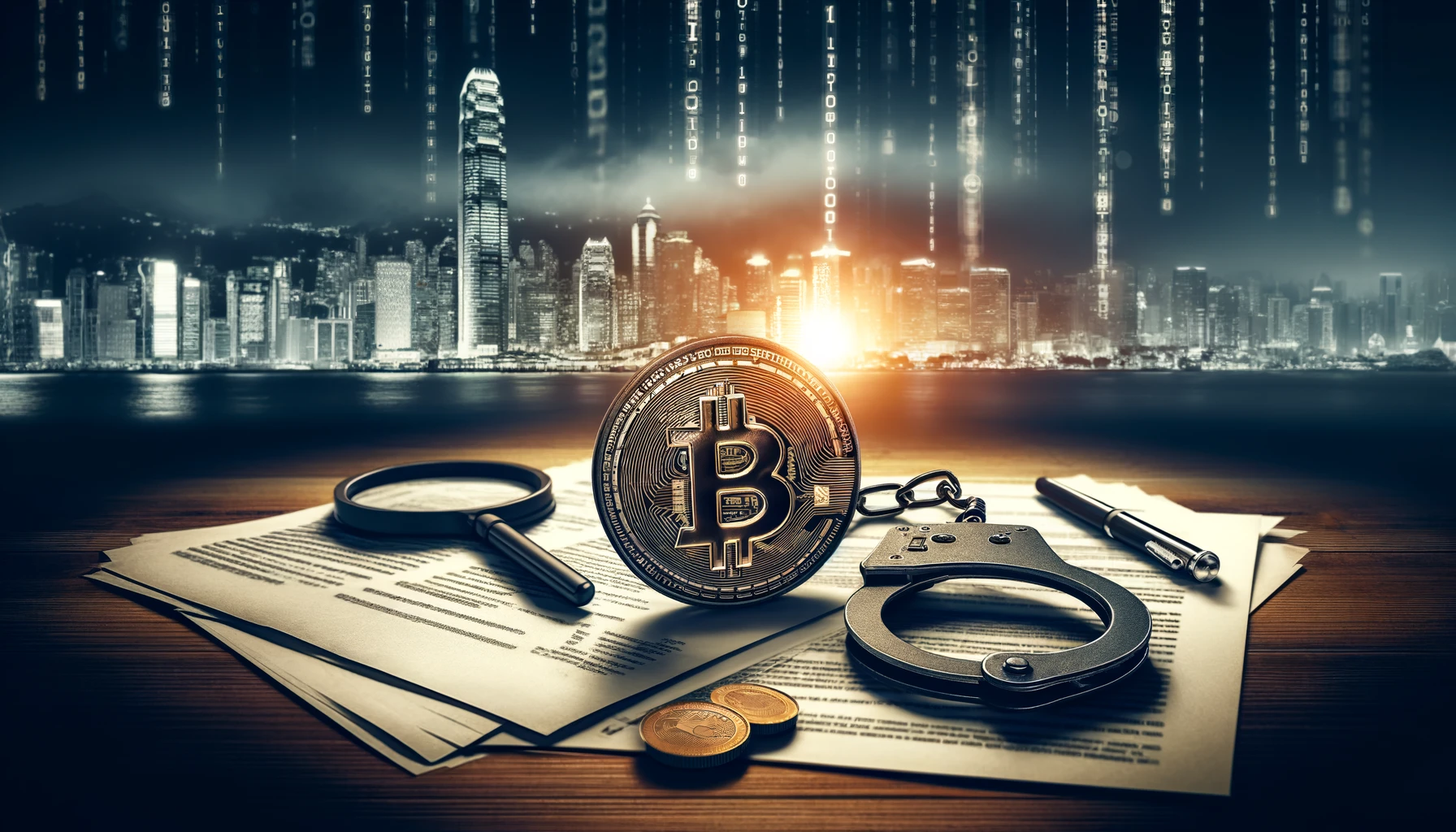
In a significant move, Hong Kong authorities have cracked down on a fake crypto exchange, Quantum AI, allegedly linked to Elon Musk.
The scam, leveraging Musk’s identity and reputation, has duped unsuspecting investors into losing significant sums.
Overview of the Crackdown on the Fake Crypto Exchange
The Hong Kong Securities and Futures Commission (SFC) swiftly responded to reports of a fake cryptocurrency exchange allegedly linked to Elon Musk.
Hong Kong Securities and Futures Commission (SFC) Action:

The SFC warned investors and decided to shut down the fraudulent platform. By leveraging its regulatory authority, the SFC aimed to protect investors from falling victim to the elaborate scam and uphold the integrity of Hong Kong’s financial markets.
According to the report, Quantum AI utilized deepfake videos and images on its website and social media platforms to falsely suggest an association with Elon Musk. This deceptive tactic misled investors into believing that the platform had Musk’s endorsement or involvement.
Discovery of the Fake Exchange:
The fake exchange was discovered following multiple investor complaints and the SFC’s diligent monitoring of suspicious activity. The fraudulent platform impersonated Musk through fake social media profiles and a website designed to mimic genuine exchanges.
The SFC worked closely with international law enforcement agencies to uncover the scam’s masterminds and prevent further victimization.
Importance of Investor Protection:
The crackdown underscores the significance of protecting investors in the ever-evolving world of cryptocurrency trading. The SFC’s proactive measures demonstrate the importance of regulatory oversight in ensuring that crypto platforms operate transparently and ethically.
Modus Operandi of the Fake Exchange

Impersonation of Elon Musk:
Scammers took advantage of Elon Musk’s enormous popularity and influence in cryptocurrency by creating fake social media profiles and websites that impersonated him.
These platforms featured doctored images, counterfeit endorsements, and fabricated quotes, all giving the impression that Musk was endorsing and supporting the fraudulent exchange. The scammers designed their website to mimic genuine cryptocurrency exchanges with realistic dashboards and transaction fees.
Exploitation of Popular Crypto Trends:
In addition to leveraging Musk’s name, the scammers capitalized on the rising popularity of cryptocurrencies like Bitcoin, Ethereum, and Dogecoin.
They promoted deceptive investment schemes promising extraordinary returns, appealing to crypto enthusiasts’ fear of missing out (FOMO). Buzzwords like “blockchain,” “decentralization,” and “DeFi” were used strategically to attract novice investors.
Deceptive Promotions and Marketing Tactics:
The fraudulent exchange lured investors with enticing promotions such as “limited-time offers” and “exclusive investment opportunities.” Victims were urged to deposit their cryptocurrencies quickly to secure their spots.
Once investors transferred their assets, the scammers either disappeared or fabricated technical issues to prevent withdrawals.
Impact on Victims
The widespread impact of this scam underscores the importance of thorough due diligence and regulatory oversight in the volatile world of cryptocurrency trading.
Financial Losses:
Victims of the fake exchange experienced significant financial losses. The scammers successfully defrauded unsuspecting investors of over $165,000 worth of cryptocurrency.
Many investors, drawn in by the promise of high returns and the false endorsement by Elon Musk, invested their life savings or substantial amounts, only to find themselves unable to withdraw their funds.
Psychological and Emotional Impact:
Beyond financial losses, the scam inflicted psychological and emotional distress on the victims. Many investors felt betrayed and humiliated for falling prey to the scheme.
The scammers exploited common psychological tactics such as the fear of missing out (FOMO) and urgency, leaving victims feeling manipulated and devastated. Some investors reported sleepless nights and anxiety over their lost investments.
Broader Implications for Crypto Regulation
Regulatory Challenges in the Crypto Space:
The crackdown on the fake exchange highlights the difficulties regulators face in policing decentralized and pseudonymous cryptocurrency transactions. The rapidly evolving nature of crypto scams demands international cooperation and constant vigilance.
Investor Education and Awareness:
Investor education plays a crucial role in preventing similar scams. Authorities emphasize the importance of verifying exchange licenses, checking URLs, and recognizing red flags in marketing promotions. Stricter regulations and enhanced international collaboration are necessary to safeguard investors and maintain market integrity.
Response from Elon Musk and the Crypto Community
Elon Musk’s Response:
Elon Musk and his representatives swiftly distanced themselves from the scam, emphasizing that neither Musk nor his companies had any connection to the fraudulent exchange.
Musk has previously expressed concerns over misusing his image and reputation for deceptive crypto schemes. He also advocated for increased vigilance among investors and stricter enforcement against scams impersonating public figures.
Crypto Community Reactions:
The broader cryptocurrency community, including major exchanges like Binance, quickly rallied to denounce the scam and raise awareness. Binance published warnings and educational content to help investors spot fake exchanges and urged them to conduct thorough research before investing.
Calls for Greater Regulatory Oversight:
The incident sparked renewed calls for stricter regulations on crypto exchanges and greater international cooperation. Industry leaders emphasized the need for self-regulation within the crypto community to identify and flag suspicious activity.
Summary of Key Points: Conclusion and FAQ
The crackdown on the fake cryptocurrency exchange allegedly linked to Elon Musk underscores the importance of vigilance in the rapidly evolving crypto space.
The Hong Kong Securities and Futures Commission (SFC) acted swiftly to shut down the scam and protect investors.
The scam exploited Musk’s reputation, leveraging fake social media profiles and deceptive promotions to steal over $165,000 worth of cryptocurrency.
Future of Crypto Regulation in Hong Kong and Beyond:
This incident highlights the need for stricter regulations and international collaboration to combat similar schemes.
Investor education is crucial for identifying red flags and conducting due diligence before investing.
In the future, regulatory bodies and industry leaders must work together to create a safer and more transparent environment for crypto trading.
FAQs
Q: What was the nature of the fake cryptocurrency exchange linked to Elon Musk?
A: The fake cryptocurrency exchange impersonated Elon Musk using doctored images, fake social media profiles, and a website that mimics legitimate exchanges. It falsely claimed to have Musk’s endorsement to lure investors into fraudulent investment schemes.
Q: How did Hong Kong authorities discover the fraudulent exchange?
A: The Hong Kong Securities and Futures Commission (SFC) discovered the scam through investor complaints and suspicious activity monitoring. They collaborated with international law enforcement agencies to uncover the scam’s masterminds.
Q: What are the financial losses attributed to this scam?
A: The scammers defrauded investors of over $165,000 worth of cryptocurrency. Victims were unable to withdraw their funds, leaving them devastated and financially impacted.
Q: How can investors identify a fraudulent crypto exchange?
A: Investors can identify fraudulent exchanges by verifying licenses, double-checking URLs, and recognizing red flags like unsolicited promotions and high-return promises. They should also consult official resources and trusted crypto news outlets.
Q: What regulatory measures are being proposed to prevent such scams?
A: Regulators emphasize the need for international collaboration and stricter oversight of cryptocurrency exchanges. Investor education and self-regulation within the crypto community are crucial in identifying and flagging suspicious activities.

Top Altcoins in 2024 Will Be Dominating Investor Interest



Memecoin Madness: Eddie Seal Team Insults Investors and Returns Money from Presale



El Salvador Bitcoin Treasury Climbs to Over $350 Million



Deutsche Bank Blockchain Project Guardian



XRP Market Surge: The End of 7-Year Accumulation



Hong Kong Cracks Down on Fake Crypto Exchange



Cardalonia Aiming To Become The Biggest Metaverse Project On Cardano



WOM Protocol partners with CoinPayments, the world’s largest cryptocurrency payments processor



P2P2C BREAKTHROUGH CREATES A CONNECTION BETWEEN ETM TOKEN AND THE SUPER PROFITABLE MARKET



ETHERSMART DEVELOPER’S VISION MADE FINTECH COMPANY BECOME DUBAI’S TOP DIGITAL BANK



WOM Protocol Recommended by Premier Crypto Analyst as only full featured project for August



Project Quantum – Decentralised AAA Gaming
Trending
-



 Crypto2 years ago
Crypto2 years agoCardalonia Aiming To Become The Biggest Metaverse Project On Cardano
-

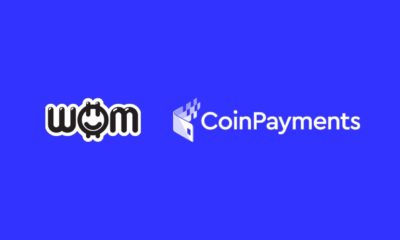

 Blockchain4 years ago
Blockchain4 years agoWOM Protocol partners with CoinPayments, the world’s largest cryptocurrency payments processor
-

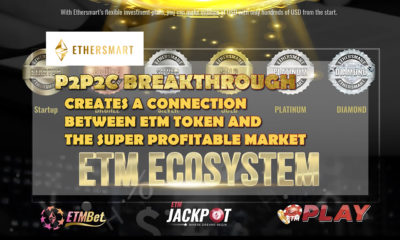

 Press Release3 years ago
Press Release3 years agoP2P2C BREAKTHROUGH CREATES A CONNECTION BETWEEN ETM TOKEN AND THE SUPER PROFITABLE MARKET
-



 Press Release3 years ago
Press Release3 years agoETHERSMART DEVELOPER’S VISION MADE FINTECH COMPANY BECOME DUBAI’S TOP DIGITAL BANK
-



 Blockchain4 years ago
Blockchain4 years agoWOM Protocol Recommended by Premier Crypto Analyst as only full featured project for August
-

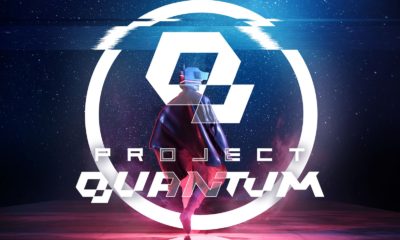

 Press Release3 years ago
Press Release3 years agoProject Quantum – Decentralised AAA Gaming
-

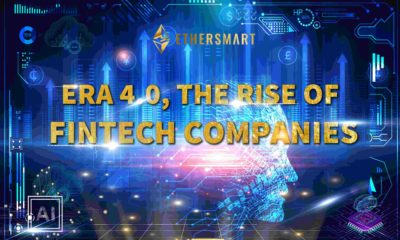

 Press Release3 years ago
Press Release3 years agoETHERSMART DEVELOPER’S VISION MADE FINTECH COMPANY BECOME DUBAI’S TOP DIGITAL BANK
-

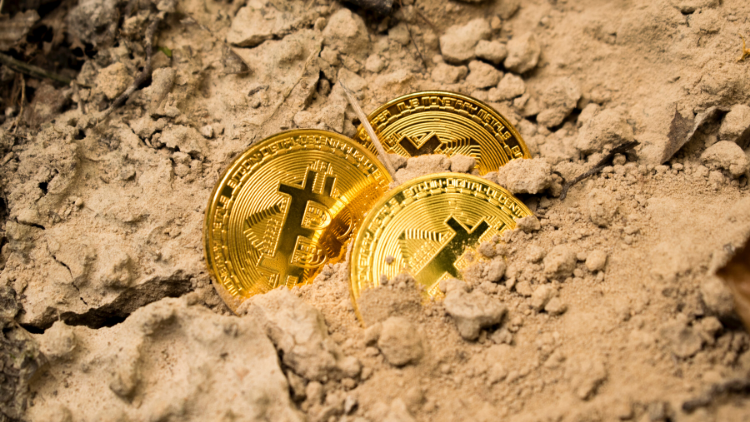

 Blockchain4 years ago
Blockchain4 years ago1.5 Times More Bitcoin is purchased by Grayscale Than Daily Mined Coins
